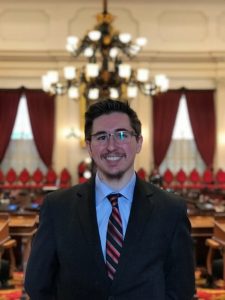Total Costs for Childcare Bill Expected Next Week, Two Months into Session
The Senate Health and Welfare Committee noted cost implications in S.56 where further discussion will be needed. In doing so, the Chair warned that addressing everything at once would be very costly and that the bill could die under its own weight if there is too much money involved. When the Joint Fiscal Office provides a fiscal note on the cost of each proposal, the remaining proposals in the bill will have to be weighed and prioritized.
Proposals to address childcare include:
- Increase the Child Care Financial Assistance Program (CCFAP) eligibility from 350% to 425% of the poverty level.
- Create a tiered professional compensation standard for childcare workers commensurate with public school educators and annual adjustments.
- Tie a childcare provider’s participation in CCFAP with the use of this tiered system.
- Make payment to a center based on enrollment rather than capacity.
- Make a payment schedule that incorporates the total cost of care.
- Allow all centers to receive payment regardless of STAR rating so families without access to high-level STAR programs are not disadvantaged from accessing CCFAP.
- Create a non-citizen childcare assistance program.
- Continue workforce retention grants with $7.3 million in funding.
Additional related proposals in S.56 address governance and a property tax credit for childcare centers.



